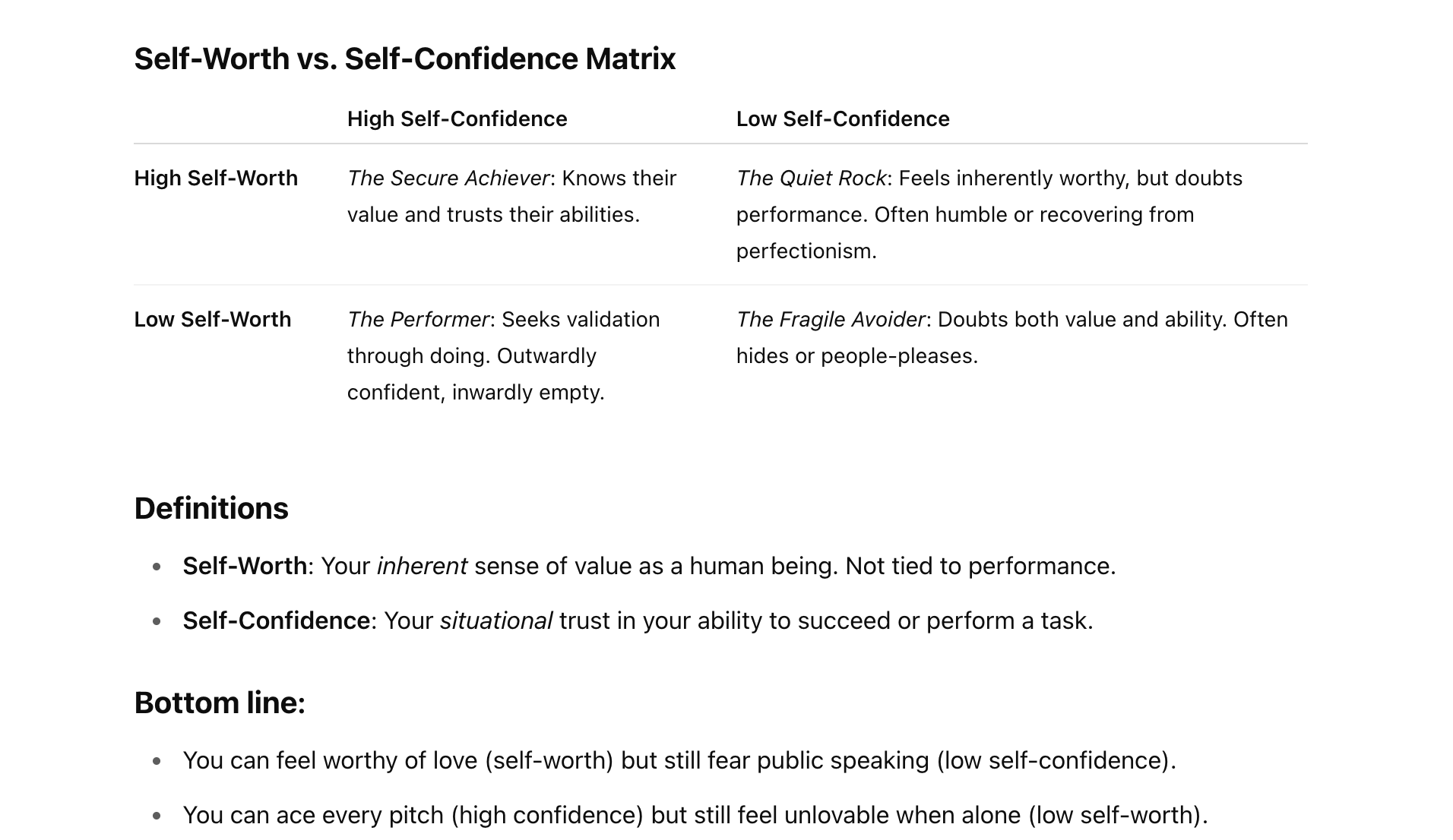The Era of the Performative Self
We live in a time of the performative arts.
Even if we never auditioned for acting school, social media has cast us all into roles. Platforms reward performance over presence. And we’ve built a stage where everyone’s performing, just not everyone knows they’re doing it.
Let’s not confuse this critique with a dismissal of true performance.
Great acting is a skill, a mirror, a method of seeing the human condition through someone else’s nervous system. The ability to embody different roles, to reveal discomfort, contradiction, shame, or desire - that is true art. It fosters empathy. It challenges biases. And when done right, it leaves us changed.
However, it unravels when performance becomes compulsive. When we forget it’s a role and start living from it. That’s not art. That’s adaptation: the slow erosion of identity under the pressure to be seen. And no tool has accelerated that collapse faster than social media.
What fills our feeds isn’t presence, it’s performance. Vulnerability, engineered for clicks. Authenticity, commodified. “I just wanted to share something real,” followed by a selfie mid-cry or an “unedited” photo that’s still curated for impact.
It’s dopamine theatre. A desperate call for validation wrapped in the language of healing. So how did we get here?
Enter the Matrix: Self-Worth vs. Self-Confidence
To understand the psychological engine behind this era of performance, we need to separate two concepts people often conflate: self-worth and self-confidence.
Self-worth is your inherent belief that you are enough without needing to prove it.
Self-confidence is your situational belief that you can execute well in a given context.
Who Are the Fragile Avoiders?
These are individuals with low self-worth and low confidence: the quietly collapsing performers. They don’t posture or peacock, but they are deeply shaped by fear, comparison, and invisibility. They are highly introspective, but often stuck in loops of analysis-paralysis. Tend to delay decisions, over-prepare, or pre-disqualify themselves. They fear rejection or failure so intensely they’d rather disappear than be “seen failing” - they will settle in life in all aspects. They will not be loud and obnoxious, yet they will seek validation indirectly: through caretaking, passive loyalty, or “being nice”.
On the contrary: the loudest voices, the over-sharers, the try-hards, the endlessly “raw”, often sit in the Performer quadrant: high self-confidence, low self-worth.
They’re confident enough to be seen but the motivation isn’t expression, it’s compensation. Their inner script says: “I’m only as good as what I do. So I better keep doing.” Applause becomes identity. And social media is their arena. This quadrant often shows a higher prevalence of narcissistic traits as a defense-mechanism. Narcissism frequently begins as an adaptive response to early emotional injury: neglect, shame, or inconsistent mirroring. As adults, it can present as self-absorption but the core is fragile. The term is overused today. Most of us carry narcissistic traits to some degree, and in moderation, that drive for impact can be useful. But when it dominates, it becomes toxic. The tragedy is this: the more disconnected someone becomes from their inner self, the more likely they are to be praised for looking confident, composed, or successful.
But living a performance-based life comes at a cost - and it’s not uncommon for those who “had it all” on the outside to quietly collapse behind the scenes. Because chronic disconnection isn’t sustainable. It erodes self-trust, and over time, that can become life-threatening (read: suicidal).
What About the Quiet Ones?
Contrast that with the Quiet Rock. These are the ones who don’t flood the feed. They know they’re enough but aren’t always confident in how they’ll be received. They don’t crave the spotlight, but when they speak, it’s real.
There’s no performance.
No self-commodification.
No trauma-as-branding.
They’re not afraid to speak - they just don’t want to sell their truth for attention.
So they stay quiet, but let’s not romanticize disappearance. What goes unseen doesn’t stay silent, it festers, and eventually speaks in the language of contempt. And we have no one to blame but ourselves: we chose to become invisible. If we don’t like the flavour, we need to change it up.
The answer, however, isn’t louder noise or perfect polish. It’s intentional presence. Showng up grounded, not curated. Expressing, not performing. Because performance without presence is hollow. Authenticity without integrity is just branding. Attention without self-worth is not success, it’s merely addiction, disguised as ‘relevance’.
So maybe the real rebellion today isn’t louder vulnerability, it’s quiet dignity.
The world doesn’t need more spectacle. It needs people who remember who they are, even when no one’s watching. Yet also doesn’t shun the spotlight when everybody is, in fact, watching.
_________________
This isn’t just cultural commentary. It’s a clinical pattern I see daily: nervous systems stuck in performance mode, self-worth outsourced to feedback loops, bodies paying the price. Recovery starts by bringing identity home - biochemically, emotionally, spiritually.
Want to step out of performance and into presence? Let’s talk.

